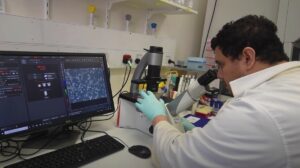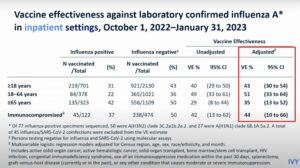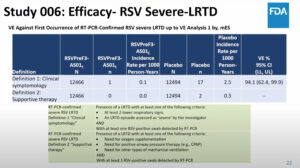NEW YORK (Reuters Health) – Treatment with the anti-tumor necrosis factor antibody adalimumab may arrest bone loss in patients with rheumatoid arthritis, according to study results reported in the March issue of the Annals of the Rheumatic Diseases.
Findings from the study also support previous research suggesting that low-dose corticosteroid therapy has a net beneficial effect on bone mineral density (BMD) in rheumatoid arthritis patients. This, the authors note, may be the result of their anti-inflammatory properties.
To assess the impact of TNF blockade on bone loss with rheumatoid arthritis, Dr. P. P. Tak, from the University of Amsterdam, the Netherlands, and colleagues measured femur neck and lumbar spine BMD before and 1 year after treatment with adalimumab in 50 patients. All of the subjects were on stable doses of methotrexate and were permitted to use prednisone (10 mg/day or less).
At baseline, disease activity and disease duration were inversely linked to BMD at both anatomical sites (p < 0.05).
In contrast to what is usually seen with standard disease-modifying antirheumatic drugs, the current study group showed no significant drop in lumbar or femur neck BMD at 1-year follow-up.
As noted, prednisone appeared to have a beneficial effect on BMD. Specifically, patients who used prednisone had a 2.5% increase in femur neck BMD compared with a 0.7% drop seen in non-users.
“The results of this study confirm and extend previous findings with infliximab in rheumatoid arthritis,” the authors conclude. “We observed that BMD does not increase significantly after 1 year of adalimumab therapy, but on average progressive bone loss is halted.”
Reference:
Ann Rheum Dis 2009;68:373-376.




